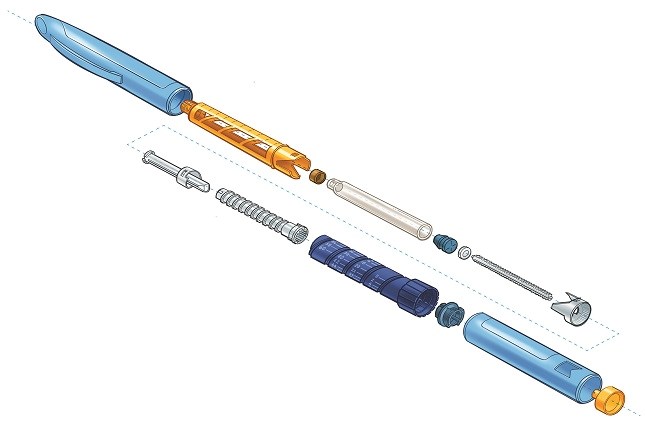Expanded Portfolio of Compounds Based on Patented Lubrication Technology
SABIC has expanded its LNP Lubriloy technology to include additional base resins to help processor navigate the changing regulatory use of PFAs.

The LNP Lubriloy portfolio of internally lubricated specialty compounds from SABIC have been significantly expanded to include additional base resins, according to the company. It is said the new products can meet customer demands for high-performance alternatives to materials lubricated with PTFE (polytetrafluoroethylene), which is a per- and polyfluoroalkyl substance (PFAS). These grades feature SABIC’s novel, patented lubrication technology said to help OEMs avoid health and regulatory issues associated with materials containing intentionally added PFAS. As an internal lubricant, PTFE is known for imparting very low friction and enhancing wear resistance. However, global concerns about PFAS have prompted customers in a wide range of industries to consider more sustainable lubricants to replace PTFE.
The new compounds, which include unreinforced and reinforced products complement SABIC’s other grades for medical devices, and are said to improve wear and slip-stick performance in applications such as drug delivery pens, gears and bearings. They are also versatile, with possible use in applications across multiple industries, including the mobility industry, industrial and infrastructure applications such as automotive under-hood components and interior parts, water meters, conveyor belt guides and tensioners, and other moving parts.
First launched in 2021 was LNP Lubriloy N2000, a proprietary internally lubricated compound that is designed to help prevent buzz-squeak-rattle (BSR) noise in automotive interiors. Based on an amorphous blend, LNP Lubriloy N2000 offers both molded-in color capability and paintability. A compatibilized olefinic alloy, free of silicone and PTFE, is being poised as an innovative drop-in alternative to standard PC/ABS that enables automotive OEMs and tiers to significantly reduce friction and stick-slip behavior between molded parts to limit or prevent unwanted noise.
Related Content
-
Polymer Showdown — PPO vs. PA66: May the Best Material Win
Second in a series, an expert from plastics engineering consultancy The Madison Group pits leading thermoplastics against each other to see how they differ in processing characteristics, chemical resistance, thermal and mechanical performance, and more.
-
ICIS Launches: Ask ICIS Generative AI Commodities Assistant
Said to be the first of its kind, this AI assistant will enhance access to ICIS’ intelligence and insights for the energy and chemical markets.
-
BASF Highlighting How They 'Make, Use and Recycle Future Solutions'
NPE2024: BASF is using its proprietary computer-aided engineering tool Ultrasim when designing for sustainability in a broad range of industries.





